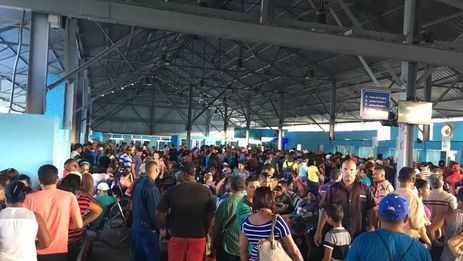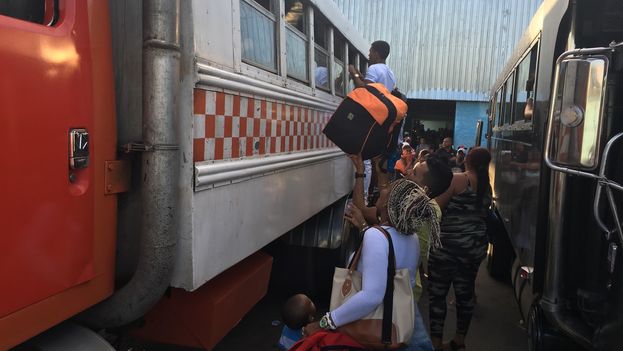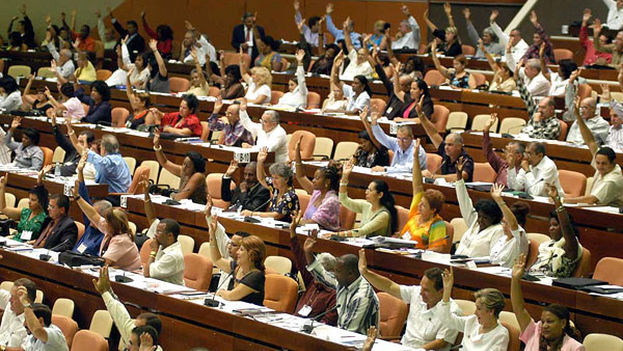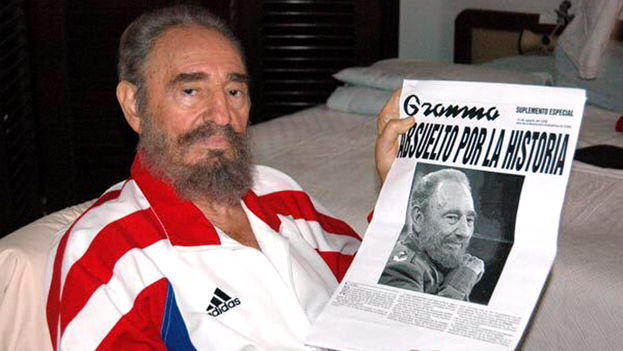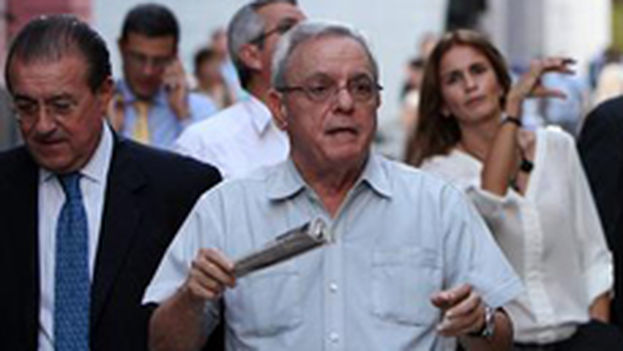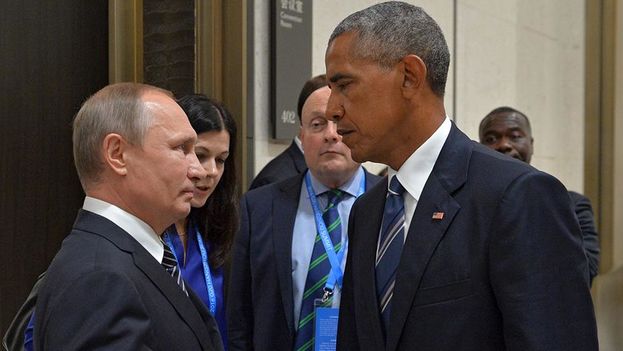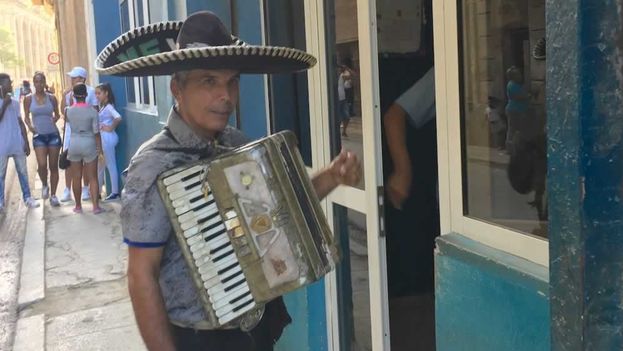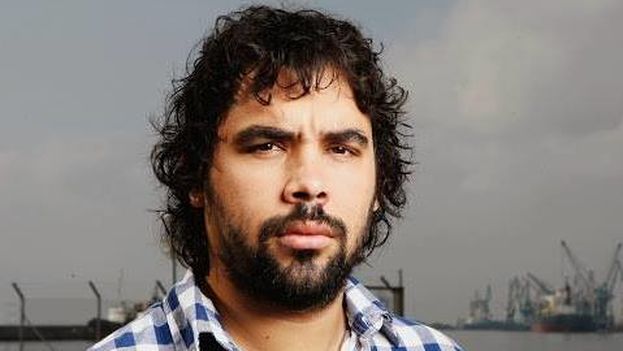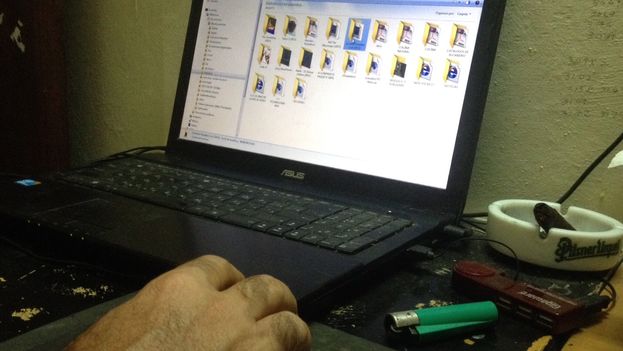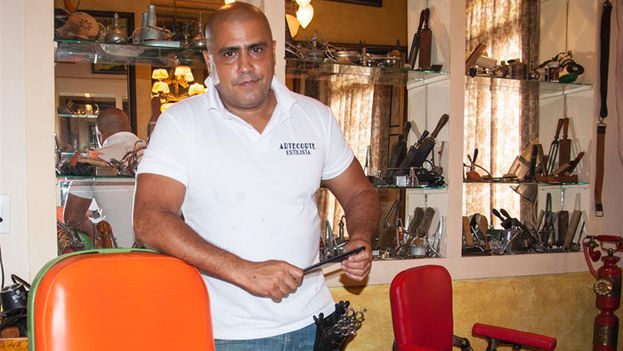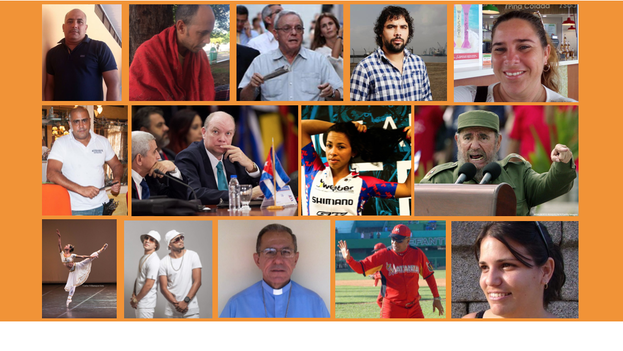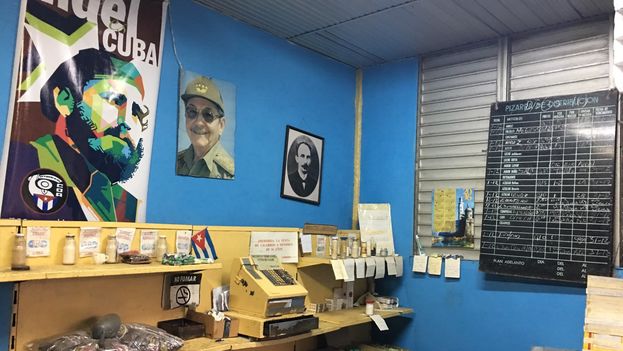With a paternity shared between Puerto Rico and Panama, this urban sound marks the birth of the millennium. It has added a naked touch and a certain lascivious rhythm to the times we live in. The lyrics of the songs venerate ostentatiousness as a virtue, celebrating a world where the size of your watch and the thickness of your gold chains are ever more important.
Reggaeton has won out over the protest song of so many social dreams born in Latin America, most of them failed. Its raw materiality has also displaced those anthological boleros that had us weeping on our bar stools, and the carols that overwhelm us at the end of the year. The singers of this fierce music don’t want to be seen as heroes nor as broken-hearted lovers. Rather, they want to convey an image of cynical survival, of calculated lightness. continue reading
Hence the fuss kicked up by some in response to the impudent lyrics of Cuatro Babys, a song from the Colombian Maluma, where he brags about having four women at his beck and call. The repulsion gets buried in the 200 million (and counting) views the video has enjoyed on YouTube. These are times of hits… not of indignation.
Maluma’s assertions do not scandalize the followers of the rhythm, who see him as the chronicler of a tangible and known reality. It is not reggaeton, it is life that has not taken hold as it should. The Colombian is only the loudspeaker of such a distrubing but common message that doesn’t raise a single eyebrow around here. Blushing does not change the environment.
Reggaeton has become a way of looking at life, in a cosmogony lacking in delicacies or half-tones. It doesn’t matter whether you follow it or not, if you like it or not, there is no way to cover your ears and ignore it. It is here, there, everywhere. Our children hum its choruses. “Tengo money,” repeats a seven-year-old girl in a Cuban classroom, using the English word for cash; and her classmates complete the phrase of a popular reggaeton song. A few minutes earlier they had been shouting a slogan in the school’s morning assembly: “Pioneers for communism, we will be like Che!”
Speaking and understanding the codes of reggaeton is essential to communicating with the younger generation, but also with many of their parents. Minimizing and censoring it only strengthens it, because it has become the compass that expresses rebellion. It has lasted longer than any other genre pushed by record labels or cultural policies.
At the end of the last century, very few would have predicted that for nearly two decades already this urban rhythm would dominate the music that is played at nightclubs, private parties and on the devices we attach to ourselves with earbuds. But it has stayed with us, grabbing us with its wild impudence. Perhaps it only interprets what beats down below, far from the lights of the ceremonies, the outfits for special occasions and the opportunism.
Who would have said it? From the songs of Victor Jara to the catchy phrases of Don Omar, from the utopian Silvio Rodríguez to the emaciated Cuban musicians Yomil and El Dany. “My Blue Unicorn” grazes now in a meadow of minuscule bikinis and hundred dollar bills. Those who hummed they would “give their heart” have decided to trade it in for swimming pool in which a thousand and one nymphs frolic and don’t say a word.
To reject reggaeton, this rhythm incubated in the “New World,” is like rejecting the potato domesticated in the high plateaus. Sooner or later you will end up eating it, sooner or later you will end up dancing. Even at the most glamorous parties, the dresses are hitched up, the makeup runs, and the social climbers, the nerds, the “good kids,” end up dancing doggy style, sweating in a spasm of lust and oblivion.
Fought against far too often with the dictionary, the academy and too much café con leche, the reggaetoners are teen idols and set the styles, the customs and the forms of speech. They do not travel in yellow submarines but rather in luxury cars, surrounded by alcohol and kisses. These are not the psychedelic years, but the years of touching down, when the lower the fall and the deeper the plunge into the abyss of excess the more tracks they will sell.
Reggaeton is also a lingua franca, a common language like Esperanto once hoped to be, like HTML code did manage to be. All its followers descend or ascend to the same level when they dance. The hips that touch under its influence don’t understand ideologies, social classes, the exploitation of man or capital gains. It is the universal language of sheer pleasure, the jargon learned before birth, which we pass on with confidence.
Not by chance did Barack Obama, in his historic speech in Havana, allude to the contagious rhythm when he said, “In Miami or Havana, you can find places to dance the Cha-Cha-Cha or the Salsa, and eat ropa vieja. People in both of our countries have sung along with Celia Cruz or Gloria Estefan, and now listen to reggaeton or Pitbull.”
A lyrical battle, where reggaetoners tackle the stage and confront the microphones, fighting for the audience as if it were a reality show. The crude lyrics and machine gun blasts in their productions reinforce the sense of combat. A contest where everything is achieved with pelvic sweat.
Reggaeton has proved to be the unexpected antidote against the malaise of a culture diagnosed by Sigmund Freud. It represents, like few phenomena, the end of innocence. Was there any left? A workhorse that returns us to the state which perhaps we never left, a moment when we are only flesh and guts.
_______________________
Editor’s note: This text was published on Tuesday, 27 December 2016 in the newspaper El País.

![]() 14ymedio, Havana, 25 December 2016 – Cuban Faces of 2016: Roberto Hidalgo Puentes (Yomil) and Daniel Muñoz Borrego (El Dany) reached the status of the most listened to reggaetoneros in Cuba this year. Previously known for being part of projects like Los 4 and Jacob Forever, respectively, both young men joined last year in a group that has not stopped gaining space in the clubs, private parties and the music section of the weekly packet.
14ymedio, Havana, 25 December 2016 – Cuban Faces of 2016: Roberto Hidalgo Puentes (Yomil) and Daniel Muñoz Borrego (El Dany) reached the status of the most listened to reggaetoneros in Cuba this year. Previously known for being part of projects like Los 4 and Jacob Forever, respectively, both young men joined last year in a group that has not stopped gaining space in the clubs, private parties and the music section of the weekly packet.
